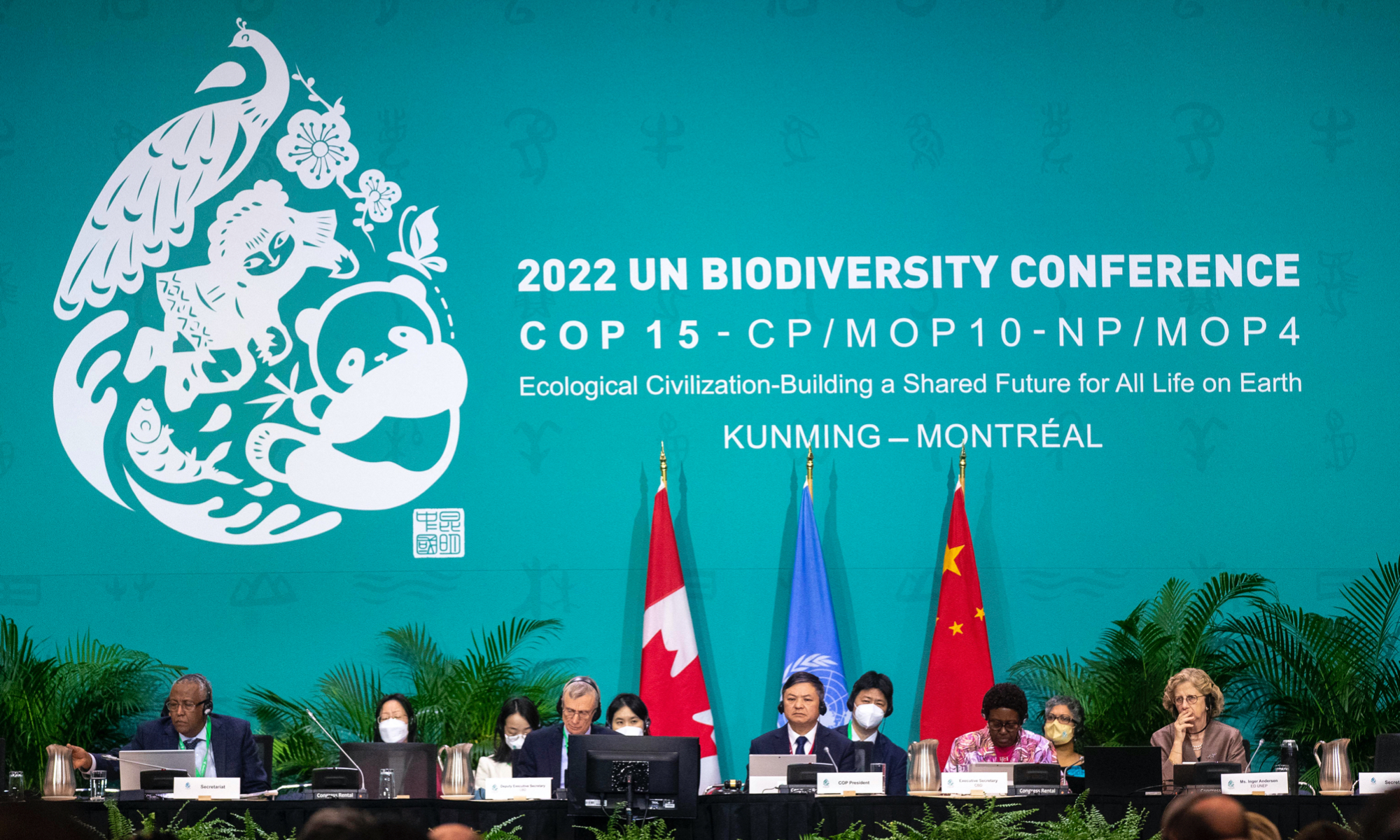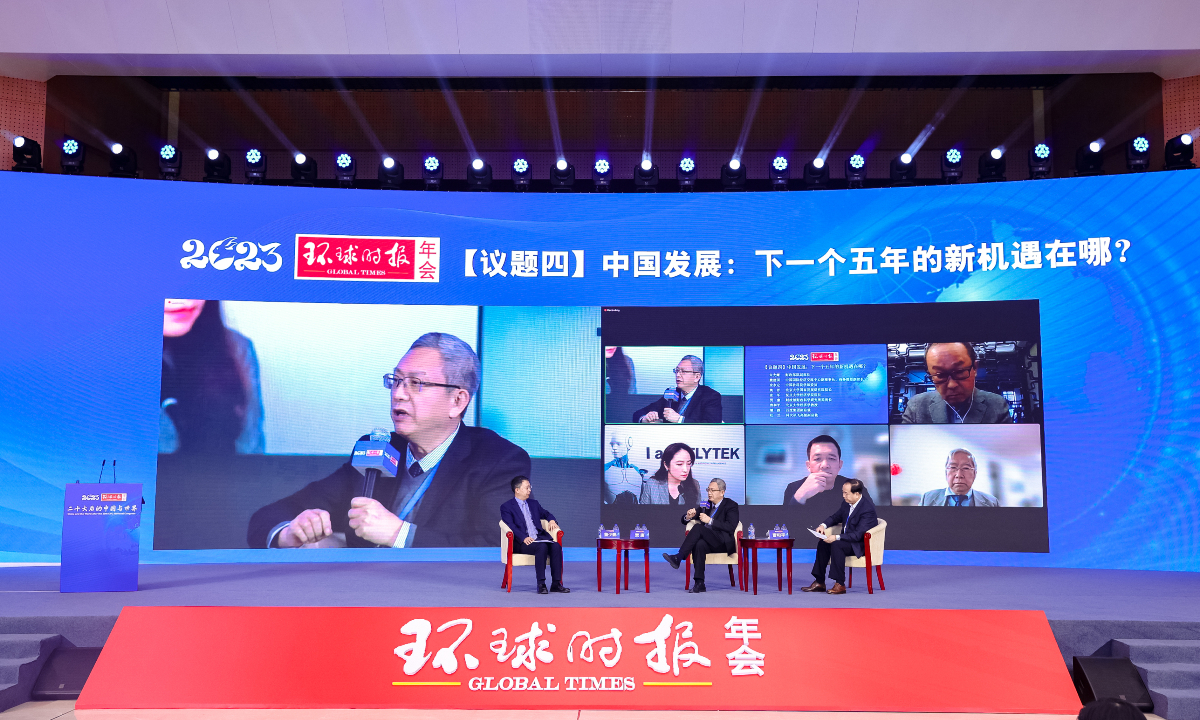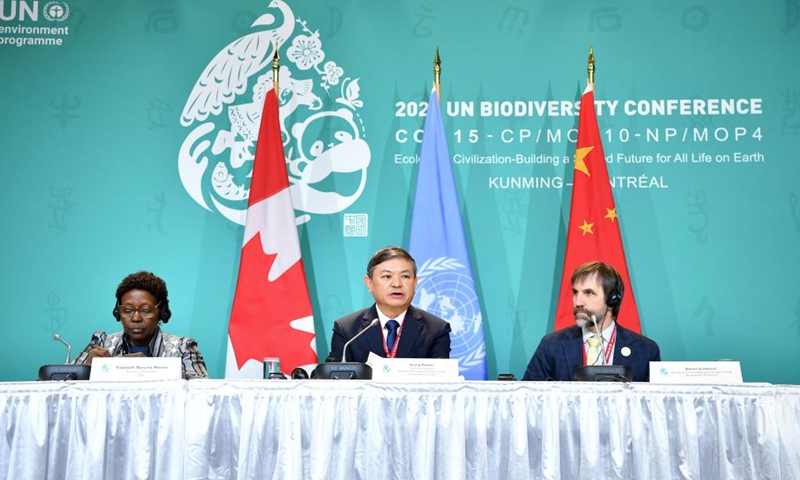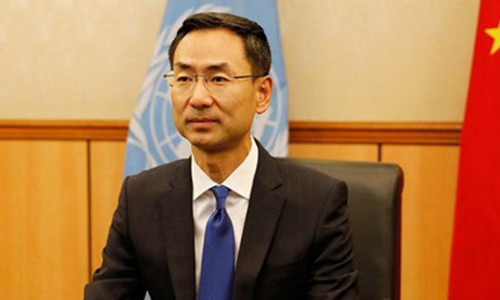Which is more influential?
On the question "How has the US or China's international influence changed in the recent year?" more than 30 percent among all participants worldwide believe the US' influence is rising, while a similar number of participants believe the US' influence is declining. More than 62 percent believe China's influence is rising. In countries like Kenya, South Africa, Nigeria, Austria, Poland and India, more people believe that the US' influence is rising rather than declining. In the US, 32 percent of participants believe their country's international influence is rising while another 32 percent believe the US' influence is declining, while 56 percent believe China's influence is rising. "Judging from real national strength, the US still has the upper hand in terms of military, economy and science and technology, but if viewing 'international influence' from a perspective of being a leader to represent values shared by humanity, or the popularity and favorability among other countries, the US' influence is certainly decreasing," Shen Yi, a professor at the School of International Relations and Public Affairs of Fudan University told the Global Times. Lü Xiang, an expert on international relations and research fellow at the Chinese Academy of Social Sciences, told the Global Times there are two main reasons why the majority of the participants worldwide believe China's influence is rising - first, China's sustainable and fast development as well as the powerful national strength are most convincing evidence; second, China's ideas for global development and security have been accepted well worldwide. China's principles of not seeking hegemony and non-interference, as well as standing with developing countries forever, have been set very long ago. When China was a weak and undeveloped country, other countries did not really care about what China said, according to the expert. Today China has become a major world power with undoubted national strength, and more and more countries have found that China keeps its promise of not seeking hegemony, Lü said. The China-proposed Belt and Road Initiative have continually brought benefits and development to China's partners worldwide, comparing the destructions and instabilities caused by the US hegemony around the globe, it's very natural for the countries around the globe to be more favorable on China's rising influence, Lü noted. Although more people in African countries like Kenya, South Africa and Nigeria, as well as some European countries like Poland and Austria believe the US' influence is rising rather than declining, the vast majority in these countries (from 56 percent in Poland and 70 percent in Austria, to 78 percent in South Africa and 76 percent in Kenya) also firmly believe that China's influence is rising. For China's rising international influence, Shen said it could be interpreted from two perspectives. One is that countries around the world do have a better impression about China and they hope China will play more important roles in the future as they have benefited from ties with China, or they want China to be more powerful to balance the negative impacts brought by US hegemony, Shen said. But in some Western countries, especially the US' allies that follow Washington closely, the reason why they believe China's influence is rising is because of the long-existing hyping of the "China threat" theory in their countries, and they are afraid of the rising influence of China as US propaganda tries to shape an aggressive image of China around the globe, Shen noted. "The US is not in its prime of life, no longer the protagonists of Hollywood action movies who are handsome, elegant, quick in action and reaction. Today's US is like 'a mafia boss in his later years who can barely walk but still holds particularly large power among the gangsters. Today, the US' position is largely determined by the system it built long ago," said Jin Canrong, associate dean of the School of International Studies at the Renmin University of China.China-US relations
The survey also shows that the world is concerned about China-US tension. More of the participants in 19 countries, including the US, expect China-US relations to "maintain the status quo." In China and the US, the survey results show that 45 percent of Chinese participants expect the China-US tension to ease, and 39 percent expect to maintain the status quo, but only 11 percent in the US expect the two sides will see an easing of tensions in the future, and 44 percent of American participants expect the status quo to remain unchanged. Lü said China does not have an anti-US propaganda now, while all news reports about China-US relations are objectively introducing the facts and also trying to guide the public to understand the China-US relations based on good will. "But in America, the two major parties are trying their best to make China look like an enemy," and to use Sinophobia to cover their incompetence in internal affairs. "If you read US mainstream media, you will see their reports are hyping and inciting conflict between the US and China every day, whether in politics or the economy, so US politicians and media should be held accountable for the worsening China-US ties that make the world concerned," Lü noted. Among the samples collected from the 33 countries, 23 percent of them believe that the most likely cause of a potential conflict between China and the US is that "China imposes more retaliation against the US," about 22 percent believe it would be "troublemaking by Taiwan secessionists" and 19 percent consider it would be "the US strengthening its containment strategy against China." Chinese analysts said it seems like the most realistic task for China and the US in the future is to keep managing their differences and competition to keep the current situation from losing control, and it would be very difficult to completely ease tensions in the short term. The US elites should be aware of the danger of China-US conflict, especially on sensitive affairs like the Taiwan question, and to what extent the two major powers can avoid conflict depends on the US' attitude toward China. If the US stops its containment strategy, China does not need to retaliate the US at all, experts stressed.Future globalization
The survey result also shows that the world is increasingly worried about the danger of conflict between the two biggest economies, while most participants around the globe believe that the world needs to find a new or better way to develop globalization. Chinese interviewees are very confident in "achieving satisfactory globalization in the next 10 years" and they are less concerned than other countries' participants on the problems like "war," "prices rising" and "food and energy crises."Experts said this shows that China has protected Chinese people well when the world is suffering from the turbulence in recent years, so Chinese people have sensed less negative impacts of the current globalization. This also proves that China is qualified to share its wisdom and experiences to the world to overcome common challenges, and the people around the globe expect China to be more active in providing public goods to reform the problematic world order.
China will eye rapid economic growth next year, said economists when attending the 2023 Global Times Annual Conference
UN biodiversity deal adopted at COP15 at watershed moment
Pushing forward deal highlights China’s leading role in preserving biodiversity: experts

Implementation matters
Speaking at a Saturday conference, Huang admitted that the most challenging remaining divergences lie in the financial mechanisms, resource mobilization and the goals of the framework. "Targeting these three problems, we have invited minister-level officials from Rwanda, Chile, Egypt, Germany, Norway and Canada, and have set up three coordination working groups," Huang said. The final release said by 2030 at least $200 billion per year in domestic and international biodiversity-related funding from all sources - public and private are to be mobilized. Developing countries previously pushed for half of that̶$100 billion per year̶to flow from wealthy countries to poorer nations, Reuters reported on Sunday. Lin pointed out that the proposed targets show China's ambition and pragmatism in pushing forward a workable scheme, as setting the financial targets too high may backfire as many developed countries may refuse to pay. "Setting up an agreement is for everyone to work on. Yet judging by developed countries' blustery promises on climate issues, whether they will pay the money on biodiversity remains questionable, so the final release lowered the target for developed countries to pay at least $20 billion per year by 2025," said Lin. The developed countries still haven't fulfilled their pledge of providing $100 billion per year for developing countries to tackle climate damage. Developing nations have limited capacity to achieve goals set at the current stage, thus the financing onus falls largely on those developed countries that have the technology and money to help, said Lin. Huang Runqiusaid at a conference last week that the most important factor for a successful COP15 is reaching a framework of protecting biodiversity. What kind of framework is successful depends not only on how much we have agreed, but also how much we will realize, said Huang.As presidency of the conference, China hopes that all the goals and promises are acceptable to all participants, and will endure the test of time, said the Chinese environment minister. He hoped that both developed and developing countries will feel they have fulfilled their promises by 2030, and only those goals and promises can be counted as a real success.
MALAYSIA
Tweet










 Photo: Global Times
Photo: Global Times 













